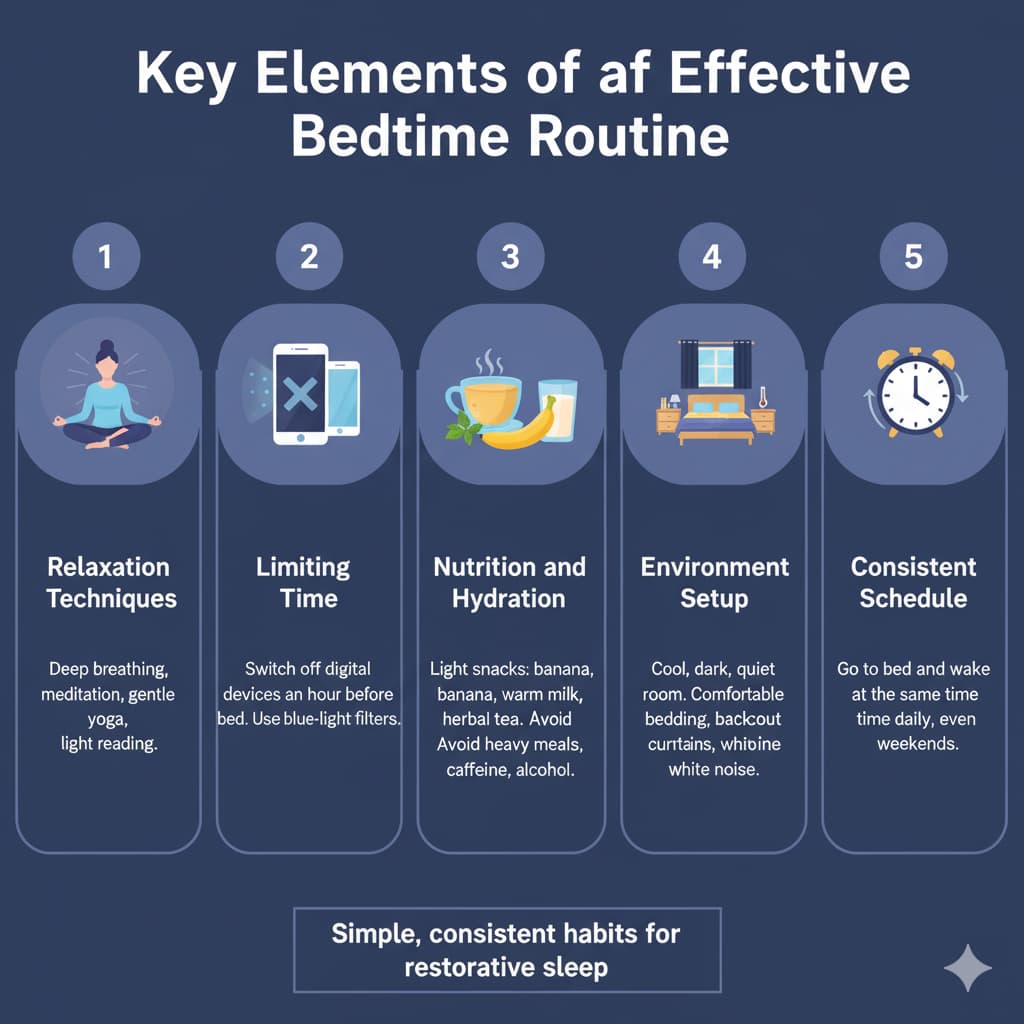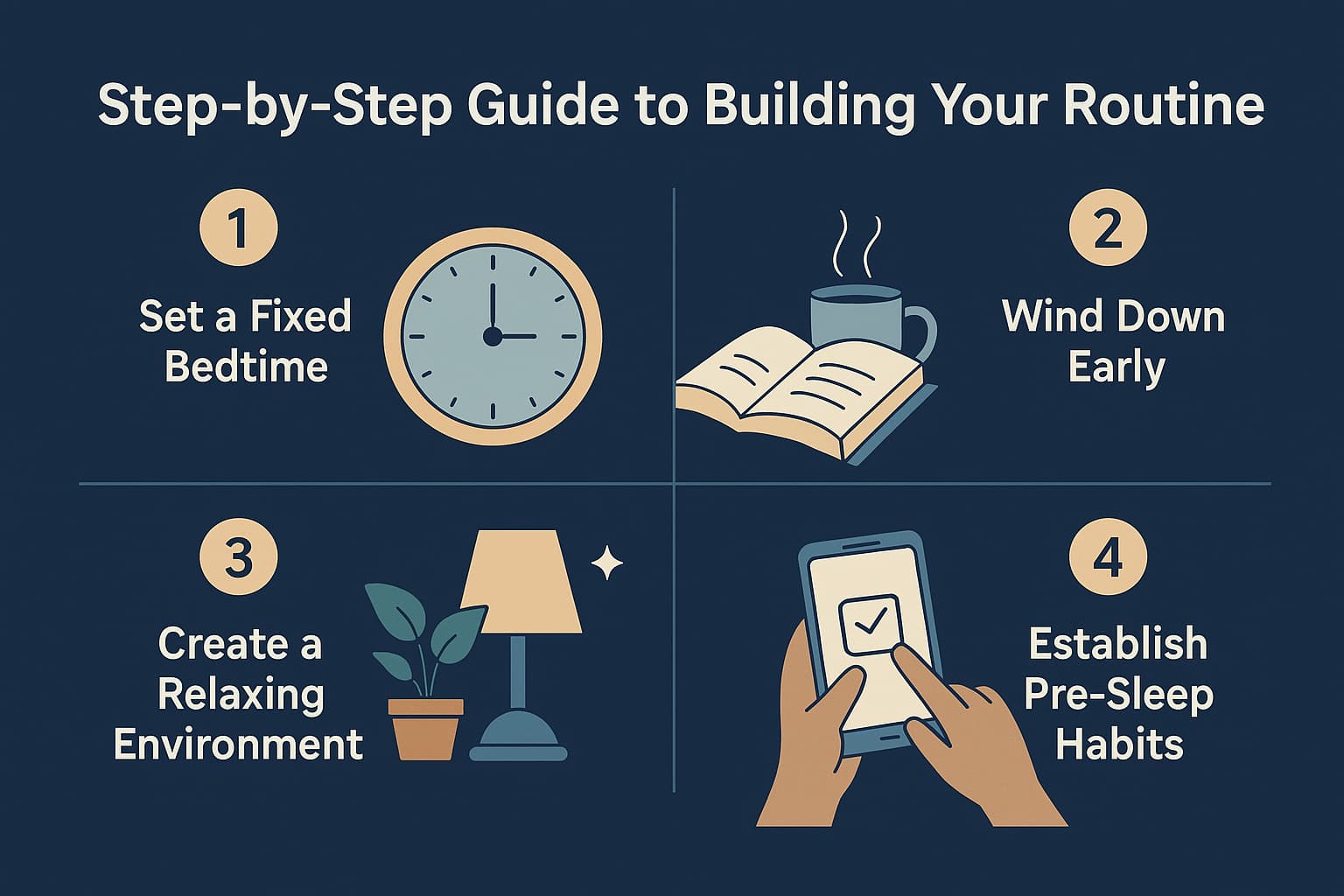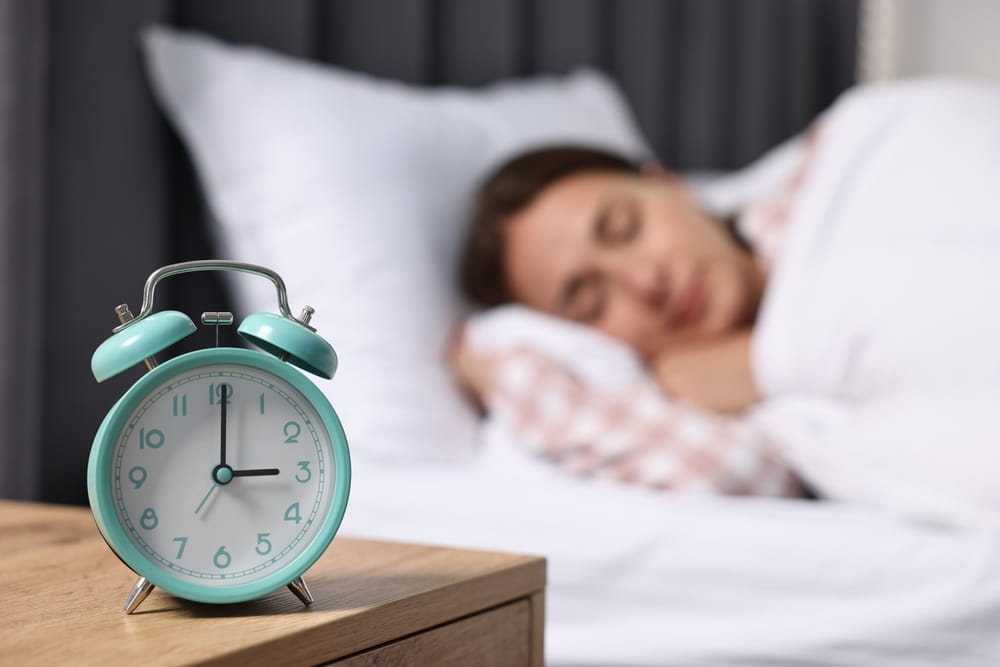How to create a bedtime routine for better sleep


Why Bedtime Habits Matter
Feeling rested is not the only benefit of getting a good night’s sleep. It boosts your immune system, improves concentration, and helps you control your mood and energy levels all day long. However, a lot of people have trouble falling or staying asleep, frequently as a result of inconsistent bedtime routines.
The circadian rhythm is a natural rhythm that functions similarly to an internal clock in your body. You can tell your brain it’s time to relax by maintaining regular evening routines. Your body might remain alert in the absence of those signals, which would make it more difficult to get a good night’s sleep and wake up feeling rejuvenated.
One of the best strategies to enhance the quality of your sleep is to establish a relaxing bedtime routine. A routine teaches your body and mind to relax on their own without the need for sleeping aids or temporary solutions. In the long run, this promotes long-term mental wellness, lowers stress, and enhances sleep.
The Science of Sleep and Routine


Sleep is not just downtime it’s an active process where your body repairs tissues, consolidates memories, and regulates hormones. The quality of this process depends on how smoothly your body transitions into the different sleep stages, including deep sleep and REM sleep.
When you don’t have a consistent bedtime routine, your circadian rhythm the internal clock that tells your body when to sleep and wake can become disrupted. This often results in difficulty falling asleep, frequent waking during the night, or feeling groggy in the morning.
Establishing a nightly routine helps stabilize this rhythm. Simple actions like dimming the lights, reading a book, or practicing mindfulness tell your brain that bedtime is near. As a result, the body begins producing more melatonin, the hormone that promotes sleepiness, and reduces stress hormones like cortisol.
Research from the Sleep Foundation shows that people with consistent nighttime rituals not only fall asleep faster but also experience deeper, more restorative rest. This proves that what you do before bed can directly shape the quality of your sleep.
Key Elements of an Effective Bedtime Routine


A strong bedtime routine doesn’t have to be complicated. It’s about creating simple, consistent habits that prepare your mind and body for rest. Here are the most important elements:
1. Relaxation Techniques
Engage in calming activities that help you release the day’s stress. Deep breathing, meditation, gentle yoga stretches, or even light reading can quiet the mind and relax the body.
2. Limiting Screen Time
The blue light from phones, tablets, and TVs can suppress melatonin production and delay sleep. Aim to switch off digital devices at least an hour before bed, or use blue-light filters if screen use is unavoidable.
3. Nutrition and Hydration
Heavy meals, caffeine, or alcohol late in the evening can interfere with restful sleep. Instead, choose light snacks if you’re hungry such as a banana, warm milk, or herbal tea, which may support better sleep quality.
4. Environment Setup
Your sleep environment matters. Keep your bedroom cool, dark, and quiet. Invest in comfortable bedding and consider blackout curtains or white-noise machines if needed. A tidy, clutter-free space also helps promote calm.
5. Consistent Schedule
Go to bed and wake up at the same time every day, even on weekends. This consistency reinforces your circadian rhythm, making it easier to fall asleep naturally.
By combining these elements, you create an evening ritual that signals relaxation and allows your body to transition smoothly into restorative sleep.
Step-by-Step Guide to Building Your Routine


Building a bedtime routine doesn’t mean changing everything overnight. Start small, add one or two habits at a time, and adjust as needed. Here’s a simple guide to get started:
Step 1: Set a consistent bedtime
Choose a realistic time that allows you to get 7–9 hours of sleep. Stick to it every day, including weekends, to train your body clock.
Step 2: Create a wind-down period
Begin relaxing 30–60 minutes before bed. Dim the lights, silence notifications, and shift into calming activities like reading or journaling.
Step 3: Prepare your sleep environment
Make your bedroom comfortable cool, quiet, and dark. A supportive mattress and pillow can make a big difference in sleep quality.
Step 4: Practice a relaxation ritual
Incorporate mindfulness, gentle stretches, or breathing exercises. These rituals help reduce stress and signal your brain that it’s time to rest.
Step 5: Limit food and drink
Avoid heavy meals, caffeine, and alcohol close to bedtime. If needed, have a light snack like fruit or herbal tea.
Step 6: Reflect and adjust
Pay attention to how well your routine is working. If something feels stressful or forced, replace it with a habit that feels more natural.
Consistency is the key. Over time, these steps will become automatic, making sleep feel easier and more restorative.
Mistakes to Avoid Before Bedtime


Even with the best intentions, certain habits can quietly sabotage your sleep. Being mindful of these mistakes can help you protect your routine and enjoy deeper rest:
1. Using screens too late
Scrolling through social media or watching TV before bed overstimulates the brain and delays melatonin production, making it harder to fall asleep.
2. Drinking caffeine or alcohol in the evening
Caffeine can stay in your system for up to 8 hours, and while alcohol may make you drowsy at first, it disrupts deep sleep later in the night.
3. Working or studying right before bed
Engaging in mentally demanding tasks keeps your brain alert. Try to finish work at least an hour before bedtime to give yourself time to unwind.
4. Eating heavy meals late at night
Large, rich meals force your body to stay active digesting food instead of focusing on rest. Aim to finish dinner 2–3 hours before bed.
5. Taking long naps during the day
Daytime naps longer than 30 minutes can interfere with nighttime sleep. If you nap, keep it short and early in the afternoon.
By avoiding these common pitfalls, you create a smoother transition into sleep and prevent unnecessary interruptions to your rest.
Benefits of a Consistent Sleep Routine


When you follow a steady bedtime routine, the benefits go beyond simply falling asleep faster. Consistency strengthens your body’s internal clock, which brings both physical and mental improvements over time.
1. Better sleep quality
A predictable routine helps you enter deeper stages of sleep, leading to more restorative rest. You’ll wake up feeling refreshed instead of groggy.
2. Reduced stress and anxiety
Calming bedtime rituals like reading or meditation lower cortisol levels, allowing your body to relax naturally. This reduces nighttime restlessness.
3. Improved focus and productivity
Well-rested people think more clearly, process information faster, and make better decisions. Good sleep boosts brain performance just as much as practice or training.
4. Stronger immune function
Consistent, high-quality sleep supports your immune system, making you more resilient against illness.
5. Long-term health benefits
Research shows that people who maintain good sleep habits lower their risk of chronic conditions like diabetes, heart disease, and obesity.
By investing in a consistent routine, you are not just sleeping better—you are building a healthier foundation for your entire life.
FAQs on Bedtime Routines and Sleep Quality
1. How long does it take for a bedtime routine to work?
Most people notice improvements within one to two weeks of following a consistent routine, though full adjustment of the body clock can take up to a month.
2. Is it okay to watch TV or use my phone before bed?
It’s best to avoid screens, as the blue light interferes with melatonin production. If you must use a device, use blue-light filters and keep usage brief.
3. What if I can’t fall asleep even after a routine?
If you are still awake after 20 minutes, get out of bed and do a calming activity like reading or journaling until you feel sleepy, then return to bed.
4. Do bedtime routines help with insomnia?
Yes, for many people. While insomnia can have multiple causes, a calming, consistent routine often reduces symptoms and improves sleep quality.
5. Can children and adults follow the same bedtime routine?
The principles are the same, but routines should be age-appropriate. For kids, bedtime stories and consistent lights-out times are effective, while adults may prefer meditation or light stretching.
👉 For further insights on improving sleep habits, explore the Sleep Foundation’s guide on bedtime routines.
Rest as a Foundation of Wellness


Creating a bedtime routine is not about following strict rules—it’s about building habits that support your body’s natural need for rest. By choosing calming activities, limiting late-night distractions, and keeping a consistent sleep schedule, you teach your body when it’s time to relax and restore.
Better sleep doesn’t just improve energy levels; it shapes your mental health, focus, and overall well-being. When you protect your nightly rest, you’re investing in long-term resilience, productivity, and balance.
Remember, the key is consistency. Start small, be patient with yourself, and allow your new habits to take root. Over time, you’ll find that a structured bedtime routine becomes second nature, and restful sleep follows naturally.
👉 For more mental wellness and lifestyle strategies, visit CoreWellFit.com.









